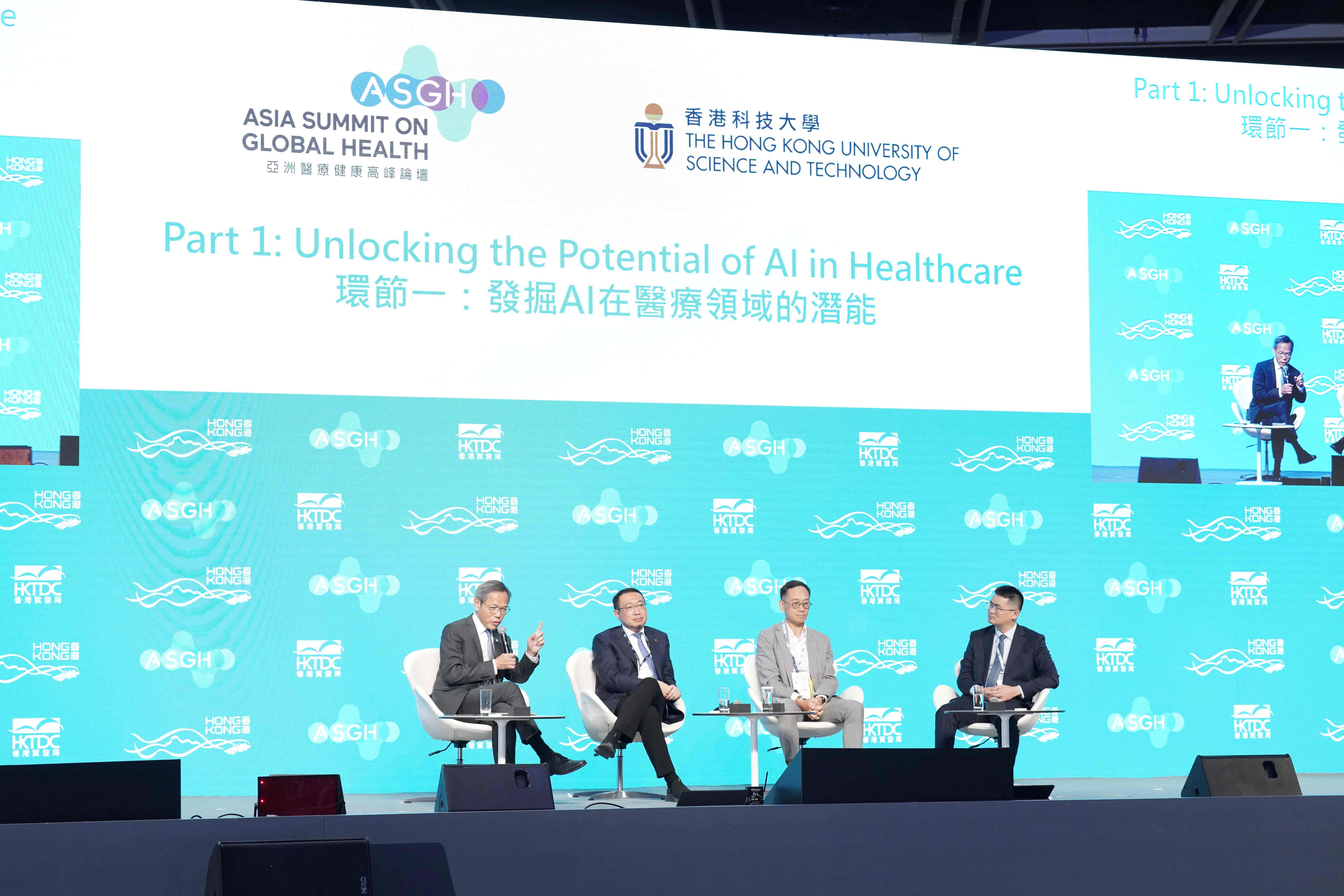26 May 2025
At the annual Asia Summit on Global Health, held today (26 May), Professor Chak-sing Lau, Vice-President & Pro-Vice-Chancellor (Health) and Dean of Medicine at the University of Hong Kong (HKU), led a pivotal session titled ‘Unlocking the Potential of AI in Healthcare’. Joined by experts in computer science, medical data science and artificial intelligence (AI), as well as representatives from the Government, Hospital Authority and healthcare sector, the discussion focused on the latest developments, ethical challenges and future directions for AI in healthcare.
Professor Lau expressed strong support for the HKSAR government's commitment, as highlighted at the Summit, to pool resources to boost Hong Kong's leading position in regional health innovation. He emphasised that all members of the Faculty of Medicine of HKU (HKUMed) would actively collaborate on the relevant policies to advance local research. As the operator of the Greater Bay Area International Clinical Trial Institute, HKUMed is dedicated to driving various clinical trial projects, facilitating cross-border trials, and partnering with institutions across the Greater Bay Area to establish Hong Kong as a global centre for health and medical innovation.
‘AI is transforming the world, especially in the three major areas of medical research, education and healthcare services, breaking the boundaries of traditional medicine,’ emphasised Professor Lau. ‘From enhancing diagnostic accuracy to personalising treatment plans and optimising healthcare operational efficiency, AI significantly improves medical standards and has unlimited potential. We are at a critical moment of technological advancement, where AI can help doctors diagnose diseases faster and more accurately, assist in surgeries, and analyse vast medical data to provide precise treatment recommendations. This not only improves patient treatment outcomes, but also alleviates the burden on the healthcare system, and ensures more effective allocation of medical resources to enhance the well-being of the public.’
Professor Lau pointed out that the combination of AI technology and medicine, such as machine learning and natural language processing, is ushering in a new era for medical research, patient care and healthcare management. However, he highlighted the need to balance technological innovation with ethical considerations, ensuring that AI applications adhere to medical ethics and genuinely benefit patients. This requires the collective efforts of the government, academia and industry to establish a transparent and responsible AI application framework, he said.
The Asia Summit on Global Health, running from 26 to 27 May, brings together healthcare experts from around the world to collectively discuss key issues influencing global development. Professor Stephanie Ma Kwai-yee, Associate Vice-President (Research and Innovation) at HKU and the School of Biomedical Sciences at HKUMed, and Dr Brian Chung Hon-yin, from the Department of Paediatrics and Adolescent Medicine at HKUMed's School of Clinical Medicine, will host sessions titled ‘The Changing Face of Cancer’ and ‘Addressing Unmet Needs: Orphan Drugs and Rare Disease Treatments’, respectively, on 27 May.
HKUMed has been at the forefront of AI integration in medicine, developing innovative applications, including an ‘AI Virtual Patient’ diagnostic tool for comprehensive training of medical students, an AI rehabilitation mobile app, designed for stroke patients to use at home, and medical-grade AI stethoscopes for real-time heart valve disease detection. HKUMed also created the first thyroid cancer diagnosis AI model with 90% accuracy, and has made new drug discoveries using AI. These advancements showcase HKUMed's commitment to pioneering cutting-edge medical technology.
Media enquiries
Please contact LKS Faculty of Medicine of The University of Hong Kong by email (medmedia@hku.hk).



Follow HKUMed